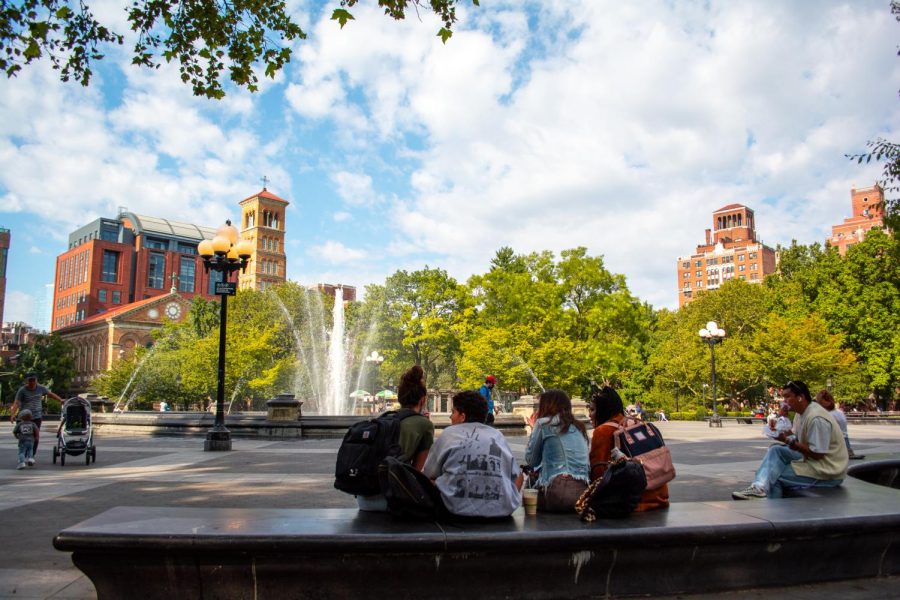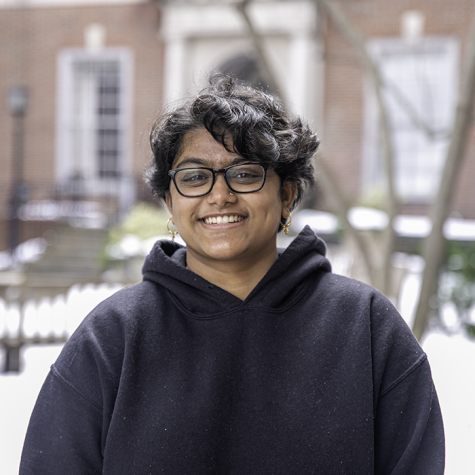Opinion: NYU’s reopening is ableist
NYU’s decision to start the spring semester with in-person instruction demonstrates a gross disregard for its most vulnerable students.
Despite the surge in cases of the omicron variant, NYU announced that classes will be held in-person. However, the omicron variant can be fatal for disabled and immunocompromised students, whose health and safety continue to be overlooked. (Staff Photo by Manasa Gudavalli)
January 17, 2022
NYU’s recent announcement that the university will hold in-person instruction during the spring 2022 semester included a revealing concession.
“To be clear, in all likelihood, we will see increased cases at the start of the semester,” the message read. “In all likelihood, we will see greater numbers of positive cases per week than we have previously experienced.”
Despite this admission, the administration has decided to continue with in-person instruction. This decision is a mistake that may prove fatal for disabled and immunocompromised students, whose health and safety continue to be overlooked.
Many believe that the highly transmissible omicron variant is more mild than previous variants, but this perception is due in large part to the fact that vaccinated and boosted populations — like the vast majority of NYU’s students and faculty — are typically protected from all but asymptomatic or mild infections.
However, omicron is far from mild for the 61 million disabled and the 7 million immunocompromised adults in the United States. Omicron can be fatal for the unvaccinated, the elderly and those with any underlying conditions. People with at least one such condition are at increased risk of hospitalization and death, even with the generally less-fatal omicron variant, according to WHO COVID-19 technical lead Maria Van Kerhove.
NYU’s decision to resume in-person instruction follows pervasive ableist attitudes in the public discourse around omicron. The relief that many people feel when given the news of omicron’s “mildness” for able-bodied and vaccinated people comes at the expense of thousands of elderly, disabled and chronically ill people.
CDC director Rochelle Walensky embodied these dismissive attitudes toward the deaths of vulnerable people when discussing how over 75% of the dead had at least four comorbidities earlier this month.
“So really, these are people who were unwell to begin with,” Walensky said. “We’re really encouraged by these results.”
These attitudes, as disabled activists have pointed out, are insensitive and eugenicist. Yet they are reflected in NYU’s decision. The university does not care about those who will be most affected. They demonstrate no belief that at-risk disabled and immunocompromised students matter. If they did, they would be among the other colleges — like Columbia University and The New School — in New York City going remote for the beginning of the spring semester.
When pressed on their plans and support structures for at-risk students and faculty, NYU spokesperson John Beckman and COVID-19 team lead Carlo Ciotoli cited a study from December 2020 suggesting low transmission on college campuses, despite the fact that it had been conducted prior to the emergence of both the delta and omicron variants.
They went on to provide an example of the services of the Moses Center as means of assistance to disabled students. But the center has offered little aid to some disabled students concerned about COVID-19.
“It’s really frustrating that [NYU] keep[s] disregarding immunocompromised and disabled students’ needs,” junior Isha Rahman said. “Last semester, the Moses Center basically just told me to suck it up and deal with it — even though I had my doctor send in documentation saying that I need remote accommodations.”
Beckman and Ciotoli also cited a recent decline in COVID-19 cases in New York City, noting that NYU “will be putting in place mitigations — much like other universities — that we know to be effective in checking the spread of COVID: grab-and-go meals, eliminating non-essential gatherings, etc.”
While this may be effective in slowing transmission, these measures put undue pressure on students that could be avoided with remote learning — especially restrictions regarding dining that often exacerbate mental and physical health conditions.
Additionally, thousands of students traveling into the city may worsen case rates in New York. Air travel has a known positive correlation with the spread of the virus, and NYU’s preventative measures can only apply on campus. For the 78% of NYU students living off-campus, it is just as easy to gather, party and spread the virus as before omicron.
The final point made by Beckman and Ciotoli noted the many other colleges across the country choosing to proceed with in-person instruction. But NYU is not like many other colleges. It does not have a centralized campus in a small college town. The majority of NYU students are spread across the densely populated city. As the largest private research university in the country, NYU’s tens of thousands of students are likely to have a significant impact on New York City’s public health.
Some number of vaccinated students with asymptomatic COVID-19 will inevitably return to the city this month. They will attend in-person lectures of up to 200 students, where they can easily transmit the virus.
NYU’s in-person policies may have a fatal impact on those more vulnerable to serious infections. For example, how many NYU students have diabetes or asthma? How many are immunocompromised or have other disabling conditions that put them at far greater risk? And most importantly, how many of the thousands of at-risk New Yorkers who share their city with us will be affected by NYU’s careless in-person instruction policy?
NYU has offered no answers.
Contact Srishti Bungle at [email protected].




























































































































































